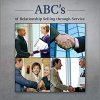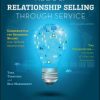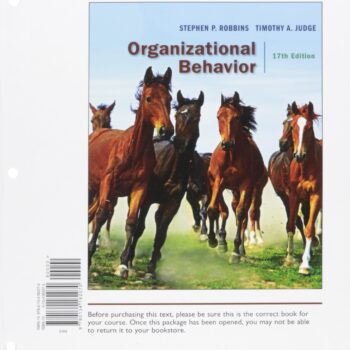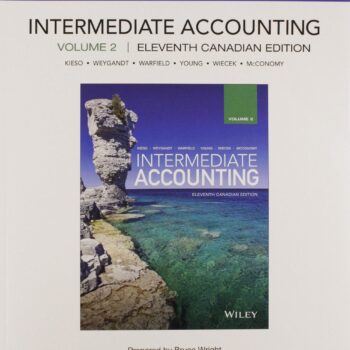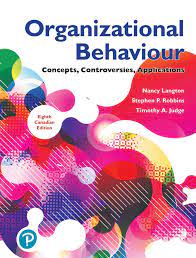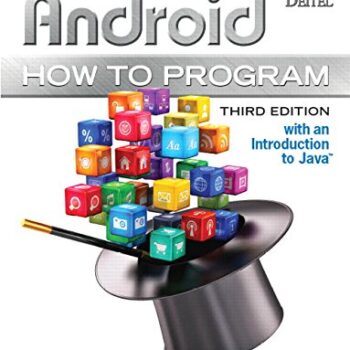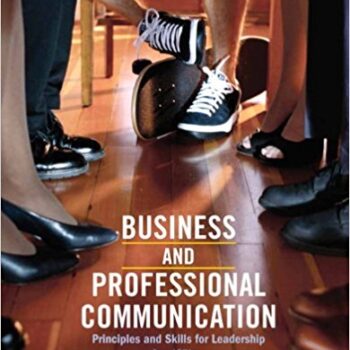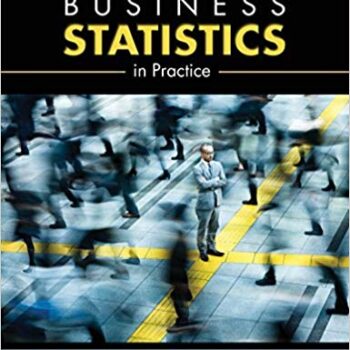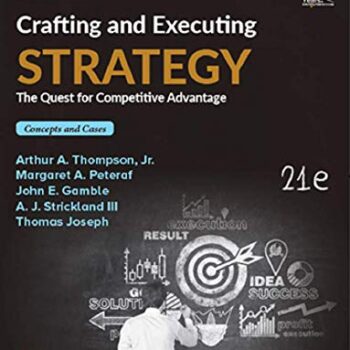Understanding sales techniques and relationship management is very critical in this modern society. You are probably aware of the notion when reading the ABCs of Relationship Selling through Service, 13th edition, by Charles Futrell. This test-enabled learning can be very fundamental in equipping learners with a smoother approach to preparing for their tests and examinations. Allow us to take you through this test bank outline and its potential purposes.
Content Outline and Key Concepts
This test bank assists in reinforcing the book’s main idea, which focuses on process blocks in the sales cycle. This test bank leaves no stone unturned, whether acquiring leads or preparing for the optimal sales presentation. In this context, the following is a list of primary divisions that are addressed in this work:
- The Sales Profession: Identifying traits of a successful salesperson, and the ethical dilemmas it can present.
- Customer Relationships and Ethics: Effective communication and reputation management to understand and respond to client needs.
- The Sales Process: Knows the different stages, connects with prospects, conducts research, encounters pushbacks, and seals the deal.
- Managing Time and Territories: Know how to strategize for maximum results through effective time management and fostering lasting relationships with clients.
Different types of assessment methods such as multiple-choice questions, true-false questions, and scenarios are used to enhance the understanding of the concepts covered in the chapters and enable students to apply them in real practice.
Benefits of Using This Test Bank
- Comprehensive Exam Preparation: Whether it’s a midterm, final examination, or a professional certification; This test bank helps in covering the most important material from every chapter. It may be helpful to go over these questions in order to reinforce concepts such as selling psychology, communication strategies, and sales presentations.
- Improved Retention Through Self Quiz: Periodic quizzing on such subjects as customer service and relationship management concepts helps in retaining these disobeysce the sources present the answers, one gets a prompt response and knows where to put in more effort.
- Convenient Format for Easy Study: This test bank is in soft copy format which can be downloaded and therefore, its usage is not restricted to any specific location. It is portable and can be used with different gadgets making it easy to slot in study time on a busy day.
- A LsalespeopleDeveloped by Experts: Created by Charles Futrell, a familiar name in the sales education field, makes it trustable as he incorporates current selling practices and therefore ideal for students and practiced professionals.
What is a Test Bank and Why Choose This Test Bank?
The decision to settle on a test bank is very important making the right one regarding a field as practical in real life as selling makes all the difference. With customer retention, sales territory management, and service follow-up, it could be the case that almoconventional is learned in this test bank—these strategies are oriented toward practice. Spending money on this kind of resource will ensure that you have acquired the requiconventionaldence to employ these skills in your place of work.
Conclusion
The ABCs of Relationship Selling through Service test bank is a very useful asset to both the students and the practitioners in sales. When you use it, it enables you to work around the concepts of the various selling disciplines, ethical considerations in sales, and the techniques in customer relationship management. This venture into education may indeed be the leap that takes your sales career to the next level.
Test Bank For ABC’s Of Relationship Selling Through Service 13th Edition, Charles Futrell, Raj Agnihotri, Mike Krush, ISBN 10: 1260169820, ISBN 13: 9781260169829
ABC’s of Relationship Selling, 13e (Futrell)
Chapter 2 Ethics First . . . then Customer Relationships
1) The ethical behavior of an employee is influenced by manapre-conventionals, and the organization.
Answer: TRUE
Explanation: The ethical behavior of individual employees is influenced by the organizatconventionalr people, such as co-workers and managers. Top management plays a significant role in the ethical decisions made by employees.
Difficulty: 1 Easy
Topic: What Influences Ethical Behavior?
Learning Objective: 02-01 Explain what influences ethical behavior.
Bloom’s: Remember
AACSB: Ethics
Accessibility: Keyboard Navigation
2) The world views and belief systems of employees from the same country are typically identical.
Answer: FALSE
Explanation: No two people are alike because of varying personalities, religious backgrounds, and family and personal experiences. Even people from the same culture will have different ideas of right and wrong.
Difficulty: 1 Easy
Topic: What Influences Ethical Behavior?
Learning Objective: 02-01 Explain what influences ethical behavior.
Bloom’s: Remember
AACSB: Ethics
Accessibility: Keyboard Navigation
3) An individual in the pre-conventional stage of morality asks, “What can I get away with?”
Answer: TRUE
Explanation: At the pre-conventional moral development level, an individual acts in his or her own best interest and thus follows rules to avoid punishment or receive rewards. This individual would break moral and legal laws.
Difficulty: 1 Easy
Topic: What Influences Ethical Behatior?
Learning Objective: 02-01 Explain what influences ethical behavior.
Bloom’s: Remember
AACSB: Ethics
Accessibility: Keyboard Navigation
4) Individuals at the principled moral level base ethical decisions on laws and consequences.
Answer: FALSE
Explanation: At the principled moral development level, an individual lives by an internal set of morals, values, and ethics and would disobey laws to follow what he or she believes is right. At the conventional moral development level, an individual conforms to the expectations of others and legal laws.
Difficulty: 2 Medium
Topic: What Influences Ethical Behavior?
Learning Objective: 02-01 Explain what influences ethical behavior.
Bloom’s: Understand
AACSB: Ethics
Accessibility: Keyboard Navigation
5) Most sales people operate at the conventional level of moral development.
Answer: TRUE
Explanation: The majority of sales personnel, as well as people in general, operate at the conventional level. However, a few individuals are at level 1, and it is estimated that less than 20 percent of individuals reach level 3.
Difficulty: 1 Easy
Topic: What Influences Ethical Behavior?
Learning Objective: 02-01 Explain what influences ethical behavior.
Bloom’s: Remember
AACSB: Ethics
Accessibility: Keyboard Navigation
6) Sales representatives at the preconventional moral development level would most likely be unconcerned about lying to customers if getting caught was unlikely.
Answer: TRUE
Explanation: Individuals at the preconventional moral development stage break moral and legal laws when they can get away with it. So, they probably would feel no concern about lying to a customer.
Difficulty: 2 Medium
Topic: What Influences Ethical Behavior?
Learning Objective: 02-01 Explain what influences ethical behavior.
Bloom’s: Understand
AACSB: Ethics
Accessibility: Keyboard Navigation
7) Morals refer to people’s adherence to right or wrong behavior and right or wrong thinking.
Answer: TRUE
Explanation: People’s morals are their adherence to right or wrong behavior and right or wrong thinking. As one thinks, one does.
Difficulty: 1 Easy
Topic: What Influences Ethical Behavior?
Learning Objective: 02-01 Explain what influences ethical behavior.
Bloom’s: Remember
AACSB: Ethics
Accessibility: Keyboard Navigation
8) At the preconventional moral development level, an individual conforms to the expectations of others.
Answer: FALSE
Explanation: Individuals at the preconventional moral development stage break moral and legal laws when they can get away with them, no matter what others expect. Those at the conventional level conform to expectations and maintain laws.
Difficulty: 2 Medium
Topic: What Influences Ethical Behavior?
Learning Objective: 02-01 Explain what influences ethical behavior.
Bloom’s: Understand
AACSB: Ethics
Accessibility: Keyboard Navigation
9) Based on levels of moral development, a professional salesperson is in the minority among sales personnel.
Answer: TRUE
Explanation: The majority of sales personnel, as well as people in general, operate at the conventional level. However, a few individuals are at level 1, and it is estimated that less than 20 percent of individuals reach level 3. Truly professional salespeople are in level 3, which is a minority.
Difficulty: 1 Easy
Topic: What Influences Ethical Behavior?
Learning Objective: 02-01 Explain what influences ethical behavior.
Bloom’s: Remember
AACSB: Ethics
Accessibility: Keyboard Navigation
10) The Core Principles of Professional Selling require people whose personal character is at level 2.
Answer: FALSE
Explanation: Professional salespeople are in Level 3, which involves making ethical and moral decisions as all costs. The salesperson does what is right not what is in his or her best interest.
Difficulty: 2 Medium
Topic: What Influences Ethical Behavior?
Learning Objective: 02-01 Explain what influences ethical behavior.
Bloom’s: Understand
AACSB: Ethics
Accessibility: Keyboard Navigation


